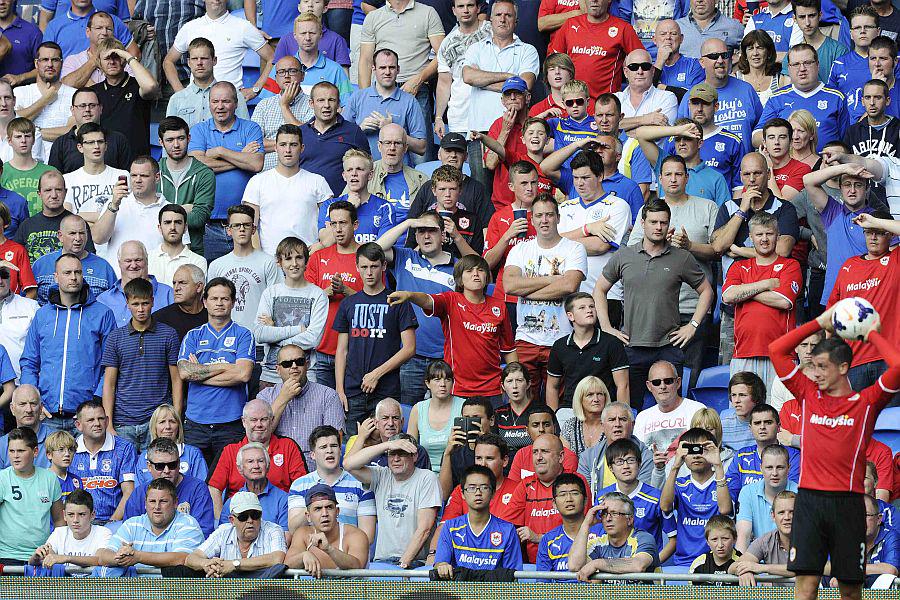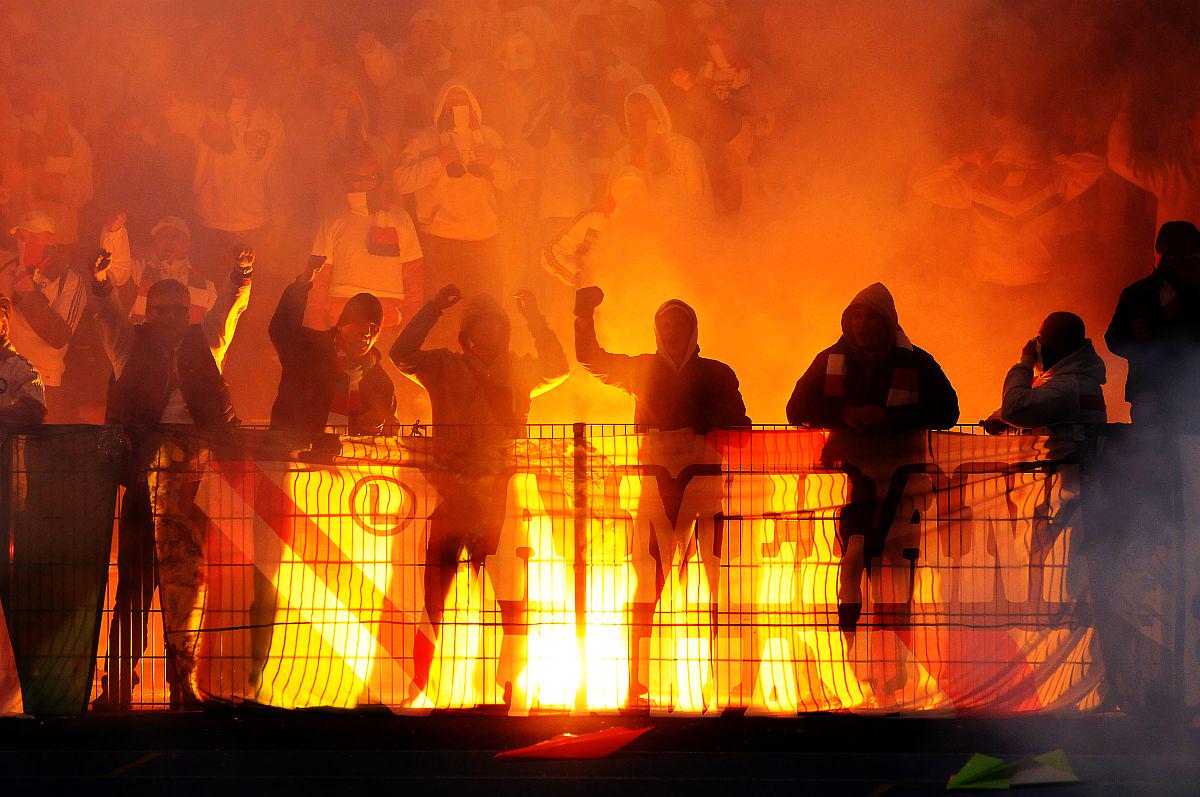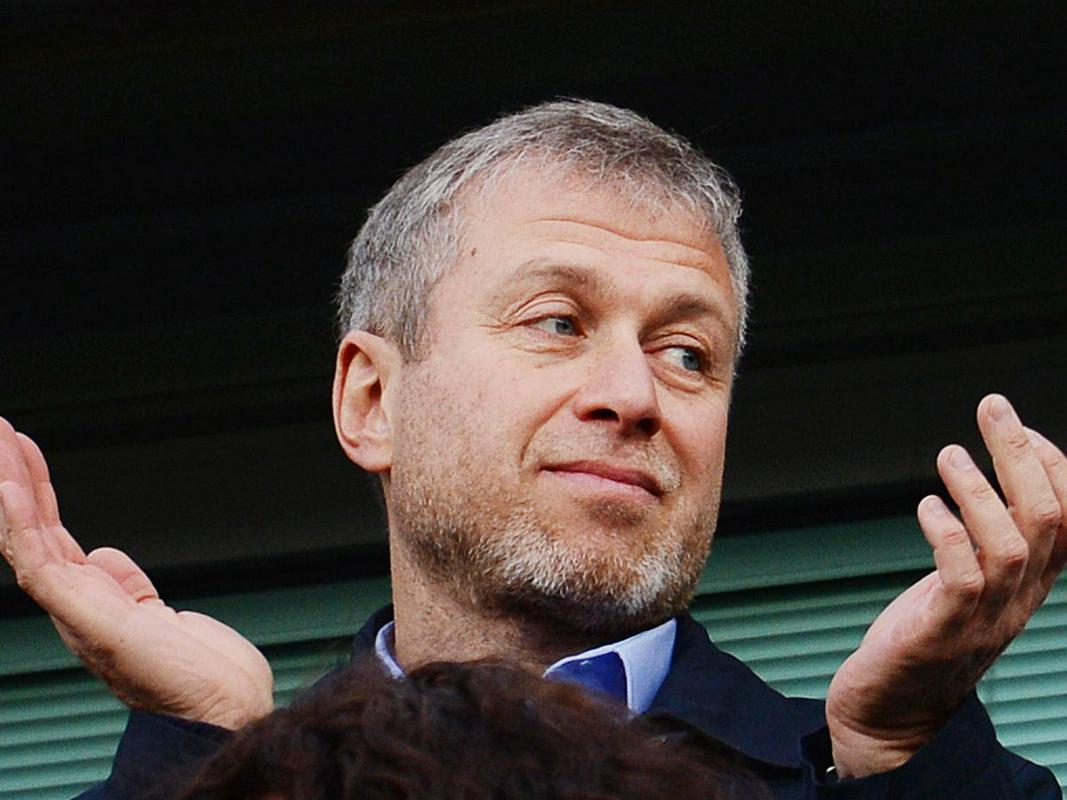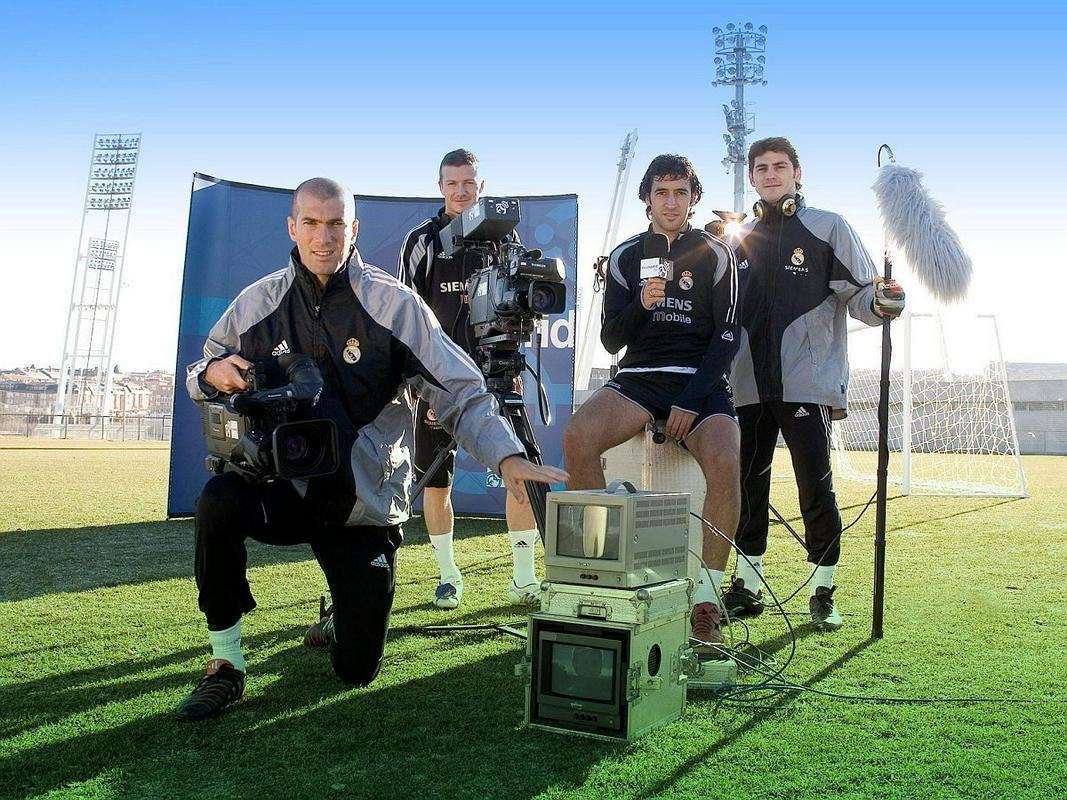




Can you imagine this year's World Cup without football fans? Without adrenalin, no cheering, no singing of anthems, no joy upon winning and no comfort when losing, where all that remains is the depressing view of an empty football stadium? Football is a spectacle which needs followers in order to survive. It needs football fans.
Football fans cheer at the stadiums, at home in front of their TV screens, and outside with friends or other team fans. They cheer in the multimedia world, on forums, on Twitter and Facebook. By reflecting a special life style – distinct from the prevailing culture - we can characterize them as a subculture.
"Players aren't doing what fans assume they're doing"
In a past period of football euphoria the slogan "Kdor ne skače, ni Sloven'c! Hej! Hej! Hej!" (If you're not jumping you're not a Slovene! Hey! Hey! Hey!) was widely accepted among fans. Sports enthusiasts together with Slovene musicians also shouted "Slovenija gre naprej" (Slovenia is moving forward). Both cheering slogans portray the deep loyalty and enthusiasm fans hold for the countries they support. Football is a sport which brings people together. It thrills, it entertains, and tears down language and intercultural barriers. At the same time it's a sport which strongly reflects patriotism and national sentiment, which have the potential to unite. On the other hand that same potential opens the door to hatred and violence among organized groups. In those cases football also has the ability to erect walls between cultures.
Assistant Professor Gregor Starc, PhD, from the Faculty of Sport, explains that matches between national teams are full of national feelings: "Fans of a national team have to the opportunity to equal themselves with all other members of their nation during a match. And everything's fine up to here. If they win, they rejoice together, and if they lose they're connected with a feeling of joint disappointment and comfort themselves that only one game has been lost. Difficulties occur when fans lose touch with the fact that the fictive “war” takes place on the field, and not on the stands."
A fan in an emotional state sees a deformed reality of the match. "In football we have a game which anthropologist Gregory Bateson named a paradox. Bateson says that playing the game is metacommunication – players aren't doing what fans assume they're doing. They aren't in involved in a battle of nation against nation, although some fans see it as a clash between nations. Players are way less hostile to each other (very often they're good friends) than the fans shouting: "Yeah! Break is leg!" assume," explains Starc.
The subculture of football fans
Every organized football fan group has its own rules, values and goals, and even anthems. But despite that there are universal rules to which almost all football fans abide. In the football subculture there exists a certain way of behaving, dressing and jargon. Singing, cheering and yelling the team anthem are all part of the ritual.
Females and football
The thought of football fans usually brings an image of a crowd of euphoric male fans. At first glance it might seem that apart from the cheerleaders there are very few female fans. Some new football clubs encourage the participation of females. There are also other clubs which are exclusively female. Today we can find female football clubs across the world – from the Americas across Europe to Africa and Asia.
We can also find female football clubs in Slovenia. Polona Petrej is a passionate fan who often feels like she's the one playing at a football match: "The feeling is full of adrenalin. I experience the match in whole different way when my brother plays. I'm often nervous before the match. I feel like I'm the one playing. I'm jumpy throughout the game, especially when my team is losing or has a minimal lead. In that case I can't wait for the referee to blow his whistle." That's how Polona explains her feelings at a match and adds: "I also relax with football. Despite all the nervousness, it does represent some kind of relaxation."
According to a survey presented in the Football Fans and Females article, the main reason why females become football fans are males. Actively participating in an area of sports enables females to make contact with other males. The initial motives then develop into a real interest for the game. Women also think that being football fans gives them an opportunity to establish an equal relationship with men. The survey also reveals that women rarely express their aggressive impulses. If they do, it's usually in a verbal way.
The Green Dragons and Viole
The first football fan clubs in former Yugoslavia developed in the beginning of the 80's of the last century; the popular Delije, Grobari, Bad Blue Boys and Torcida. At the end of the 80's then came the Green Dragons, Tifozi and Viole. After Slovenia gained independence football fan clubs started blooming. Gregor Starc explains that the practices of football fans differ not only according to the local surrounding, but also according to the league: "In Slovenia there exists a traditional rivalry between the Green Dragons and the Viole. Members of the two groups are usually involved in most of the football incidents in the country. Sometimes you can wonder whether those fans really go to matches because of football. Their playing field are the stands. They have one eye on the match, and the other on the rival fans."
Ole, ole, ole, ola
Today football stadiums play a similar role that amphitheaters used to play in ancient Greece. The things that happen inside are of public interest and are widely valued by society. Stadiums are arenas for national holidays, and palaces for football fans. And how will football fan Polona spend this year's World Cup? "I'll enjoy all the great matches. I'd like to see as many goals as possible and many nice moves. Championships like this always bring out yet undiscovered talents – and that's what I especially like about world cups. And in general, I'd like to see all the teams play fair."
Ole, ole, ole, ola, let there be cheering at the World Cup!

































































